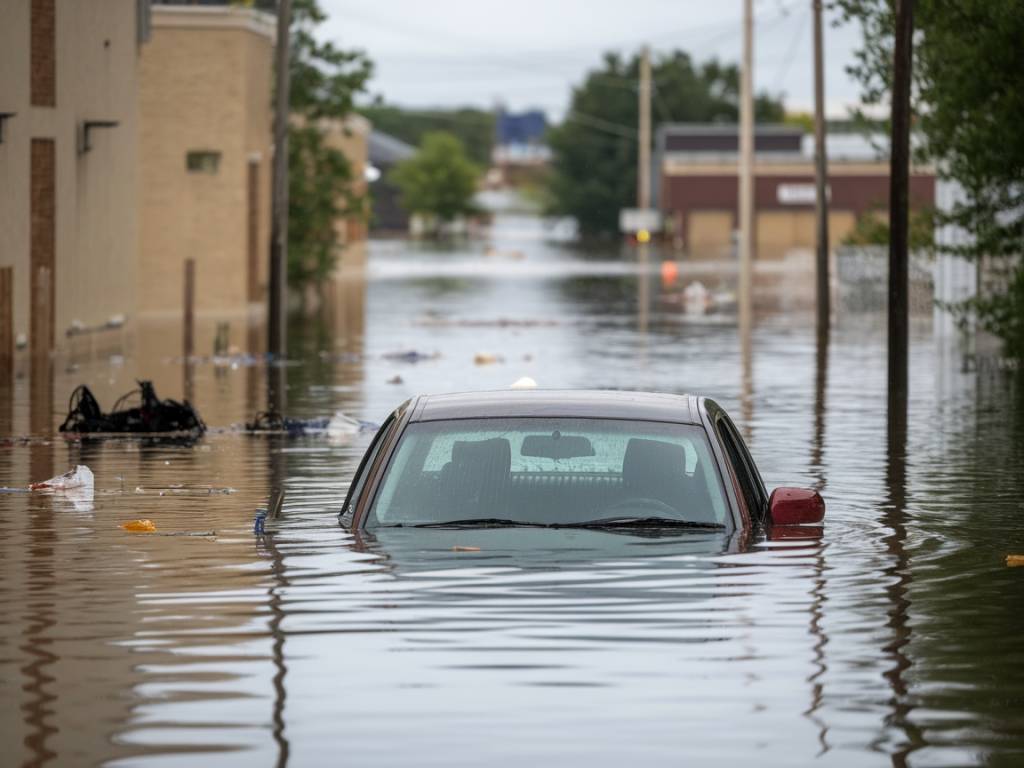When we think of extreme weather events, images of powerful hurricanes, sweltering heatwaves, and devastating floods often come to mind. But how often do we consider the silent ripple effects these events have on our health? The long-term health implications of extreme weather are an increasingly important topic, especially as climate change makes such events more frequent and severe. Let’s explore how these natural phenomena impact our health over time.
The Unseen Health Toll of Hurricanes and Floods
Hurricanes and floods are notorious for their immediate destruction, but their long-term health effects often linger long after the waters have receded. Imagine returning to a waterlogged home; the cleanup process is daunting enough without considering the health hazards.
Waterborne diseases are one of the most immediate concerns. Standing water becomes a breeding ground for mosquitoes, potentially leading to outbreaks of diseases such as dengue fever and West Nile virus. Additionally, contaminated water supplies can spread illnesses like cholera and gastroenteritis. But have you ever thought about the mental health toll?
Survivors often experience post-traumatic stress disorder (PTSD), anxiety, and depression. The stress of losing one’s home, the dislocation of communities, and the financial strain contribute to long-lasting psychological impacts. According to studies, communities hit by hurricanes can experience increased suicide rates and substance abuse issues years after the event.
Heatwaves: A Silent Threat
Heatwaves may not leave behind physical destruction like hurricanes, but their impact on public health can be equally devastating. Did you know that extreme heat is responsible for more deaths annually than any other weather-related event?
Prolonged exposure to high temperatures can result in heat exhaustion and heatstroke, conditions that can be fatal if not treated promptly. The elderly, young children, and those with pre-existing health conditions are particularly vulnerable. However, the long-term effects may surprise you.
Chronic exposure to high temperatures has been linked to cardiovascular and respiratory problems. As our bodies struggle to regulate temperature, the stress can exacerbate conditions like asthma, arrhythmia, and chronic obstructive pulmonary disease (COPD). Moreover, heatwaves can also impact mental health, leading to increased aggression and higher hospital admissions for psychiatric conditions.
The Lingering Effects of Wildfires
Wildfires capture our attention with their dramatic, destructive power, yet their impacts extend far beyond the immediate damage. The smoke and pollutants released can travel hundreds of miles, affecting air quality and posing significant health risks to distant populations.
Inhaling wildfire smoke has both acute and long-term health consequences. In the short term, it can irritate the lungs and eyes, lead to coughing, and exacerbate asthma and bronchitis. But what about the long-term exposure?
Repeated exposure can lead to chronic respiratory issues and even increase the risk of lung cancer. The tiny particles in smoke can infiltrate the bloodstream, potentially contributing to cardiovascular problems. Long after the skies have cleared, the health repercussions can linger in the form of increased hospital visits and medical costs.
Adapting and Mitigating: A Path Forward
So, what can we do to protect ourselves from these long-term health effects? Public health initiatives play a crucial role in educating communities and equipping them with the resources needed to adapt to changing weather patterns.
On a personal level, staying informed and prepared can make a significant difference. Consider creating an emergency kit equipped with essentials like clean water, non-perishable food, and medications. Additionally, having a clear evacuation plan and staying updated through reliable sources can ensure timely responses during disasters.
For broader impacts, cities and governments can implement policies aimed at reducing climate change. Transitioning to renewable energy sources, improving infrastructure, and enhancing green spaces can mitigate extreme weather events and, consequently, their health impacts.
The Human Element: Stories of Resilience
Amidst the challenges posed by extreme weather events, the stories of resilience are a testament to human spirit and adaptability. Communities have shown remarkable strength, coming together to support one another, rebuild homes, and create a safer environment for all.
Take, for example, the tale of a small town hit by a flood. Despite the devastation, the townsfolk rallied together, establishing a community center that doubled as a shelter and resource hub in times of crisis. These stories underscore the importance of solidarity and collective action in facing the adversities of extreme weather.
In the end, while the long-term health effects of extreme weather events present a formidable challenge, they also offer an opportunity for growth, adaptation, and unity. By understanding and addressing these impacts, we can build a healthier and more resilient future for generations to come.

